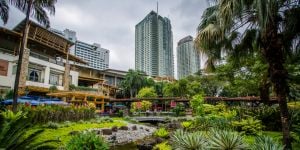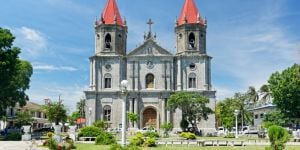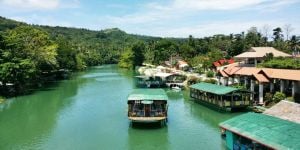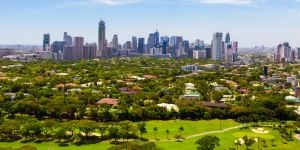Buying land in Philippines
Subscribe to the topic
Post new topic
Hi Richard
Like everything in the Philippines, you can ask ten people what are the facts and get ten different opinions.
From my ten years experience living here I would be very careful if you plan to buy land, because there are some real horror stories. Basically, a foreigner can't own land in the Philippines and if you plan on setting up a business you need to have Filipinos owning 60%.
Good luck!
It really is a minefield here.
If you're married to a Filipina the title is in her name but you are clearly named as 'being married to' and in the unfortunate event she died, you can legally inherit the property - the only way a foreigner can legally own land here.
As I understand it, there is no restriction on foreigners leasing property and I have friends where I live do just that; it makes no difference if it's in a subdivision or a Barangay. It's when you want to buy you are skating on thin ice; remember, the laws are archaic, compared with UK where you can rely on solicitors - definitely not here.
You might be interested in buying or leasing a land in Panglao, Bohol. We have a land for lease in Panglao, about 8-min. walk to Doljo beach. There is also another land beside it which is currently for sale.
Please see our listing on this site:
dotproperty.com.ph/land-for-rent-in-poblacion-panglao_2466742
Hi,
Can you provide more details about the land, like asking price, exact location on the map and size?
I am looking to long term lease or buy land
Thank you
Matei
Hi Richard. . . .
I notice you are getting some offers of land and I would suggest, from one Brit to another, you treat with extreme caution any offer from Filipino or any other sources when it comes to buying land here. As a foreigner expressing interest in buying land (a foreigner cannot own land by law), you will find plenty of people who will tell you 'they' can arrange it but be wise and study the cases of many innocent foreign victims.
There is one British guy in my subdivision who's lost 11M already, needs to spend another 10M just to finish his property and now he's in the middle of dispute with the Filipino builder which is at the court and we all know it takes many years to reach a settlement which will inevitably not in the favour of the foreigner. And whatever happens, he still will not own the property because it's in his girl friends name. Very sad, but not uncommon.
You need to live here Richard for a while to get to know the many dangers. As a foreigner you are in many places a target to be scammed and ripped off. If you want the answer to the land owning situation and foreigners, ask an opinion from ten 'experts' and you will get ten different opinions 
As they say, it's more fun in the Philippines. . . . .good luck mate
Johnny you are right, we can not own a land in Philippines, it is GF or Wife who will be the owner of it, but we are recorded in a Contract, our name is there, when it comes to be sold I believe you are need as well, I have Rice farms, silly me you see, sorry not mine Wife's and a house, again as your Britt friend I have court pending on the house, and it is 2 years now waiting, but soon going back home to Australia, how long will it take who knows, hope it happen in my life time, but then again most are in fewer of Philippines, so I have lost all ready, the only thing I have not done is give up, suborn Man I am haha.
Sorry to hear of your case and hope you get a successful outcome.
I have lived here for nearly ten years and know of many cases where foreigner's have tried to win in court. One guy in my sub division was attacked and badly beaten 11 years ago, and it's still in court.
It might be more fun in the Philippines but not a place for a faint hearted foreigner.
Best regards
You right i been here 2 years and already planning to move back home, and then you say more fun haha, I personally do not see the fun in this Country, but if you talking about Woman then I will give you that one, but then you look in Europe and you will see the most beautiful Woman in the world, not here, they just average or less, but to have fun with them is great, if you applying to this as fun then good luck to all foreigners in Philippines
Wrong if the Filipina dies there are laws dividing her part the legal child is first, her legal parents second, illigal children and illigal parents next foreign spouse last, so if you are both on the title and she dies you will be getting a partner in ownership, better to not buy period lease for 75 years with 25 year option
Here is the law---------Certain parts of the estate of a decesed Filipino citizen cannot be freely disposed of because Philippines law reserves them for the compulsory heirs ,the same reservation does not apply to Foreigners who are governed by their national inheritance laws
The compulsory heirs are classified as:
Primary- Legitimate children and or descendants
Secondary- Legitimate parents and or assendants, illegitimate parents
Concurring: surviving spouse, illegitimate children and or descendants
WRONG. If you are legally married and the wife dies first and provided she has a legal will leaving her entire estate to you, you will inherit; it's the only way a foreigner can own land here. But, if your wife dies intestate (no will) then you are correct, every man and his dog gets a share. Any foreigner who's married to a Filipina should make it a priority to get will made by a good lawyer.
To All:
Regarding the 75 year lease - RA 7652 is for a foreign investor that registers with the SEC and has a min amount of $$ to invest in industrial estates, factories and other commercial enterprises. This will not be workable or legal for most expats. A 25 year lease renewable by another 25 years is what is legal for a foreigner and it must contain the statement that the foreigner is allowed to purchase/own any improvement (i.e., houses ) on that property (as covered by Presidential Decree No. 471). The terms of the lease must include the exclusive right to construct, own, improve, remove or sell any structures on the leased land during the 25+25 years. This lease legally survives the death of any filipino lessor in favor of the lessee by law.
This is a bit tricky and must be done right - Therefore, the foreigner does not need to worry about sharing the home or non real property or the national inheritance laws and the family can't take the structures from the foreign spouse. If the couple are married prior to the lease, it must be in another foreigner's name with exclusive or joint rights transferable to the foreigner/his/her foreign family thru the lease duration. Spouses are not entitled to lease property between themselves.
Condominiums are also not permitted by law to be sold to non-Citizens of the Philippines, however it seems the law is unenforced and flagrantly violated as Condo sales do take place as par for the course. I wonder what will happen when push comes to shove and should the law be tested. I hope Expats will not be left holding the bag. Look it up, Section 5 of RA 4726.
Tony
I think many expats who have lived here for some time would agree that as a foreigner you can own a condo. The condo building however must be owned 60% by filipinos but 40% is available to foreigners. You will find when you've been here a while that in the Philippines advice sought from ten different "experts" on anything, will produce ten different opinions.
While said foreigners may defacto go through the motions of buying a condo, receiving Title thereto and they may agree with one another that they can own a condo, Sec 5 of RA 4726 states: "... Provided, however, that where the common areas in the condominium project are held by the owners of separate units as co-owners thereof, (Isn't that the very definition of a condominium - common areas are held by the owners of separate units?) no condominium unit therein shall be conveyed or transferred to persons other than Filipino citizens......" The foregoing therefore prohibits non-Filipino citizens from having condominium units conveyed or transferred to them,. FURTHER, and if I'm not mistaken, Philippine Constitution prohibits non-citizens from owning land. Again the theory behind condominium law perceives that "common areas", because they are indivisible, are held in common and commonly or jointly owned by the unit owners in common. Since all condominium projects are erected and stand on land which is thereby integrated into the project and designated as part of the "common area". Then, if the land becomes part of the common area jointly and owned in common as is the concept, how then can a non-citizen unit owner participate in this concept of owning the land, when they are precluded by law? LIKE I SAID, WHAT HAPPENS WHEN PUSH COMES TO SHOVE AND THIS AMBIGUITY IS HELD TO LEGAL RESOLUTION?
The issue has not been questioned only because everyone seems to be making money, however, it is at the peril of the foreigner who knows no better, or who would rather not know better.
I think one must look at actual Supreme Court rulings to best answer the question of foreign ownership in certain condos types. Before jumping to Section 5 of RA 4726 one must first look at the legal language. There is a difference between "ownership of land" vs. "interest in real property".
Section 2 of the Condominium Act (R.A. No. 4726) defines a condominium as an “interest in real property consisting of separate interest in a unit in a residential, industrial or commercial building and an undivided interest in common, directly or indirectly, in the land on which it is located and in other common areas of the building.”
This makes is very clear that, ownership of mere “interest in real property” is not equivalent to ownership of “land”. Of course the 40% rule is always there to place a cap on a foreign individual or collective "land" ownership.
Next we need to review court rulings that have rendered an "interpretation" of such laws as RA 4726. In the SEC-OGC Opinion No. 08-27 dated 27 November 2008, it stated that foreigners can acquire condominium units and shareholdings or membership in condominium corporations up to no more than 40% of the total and outstanding capital stock of a Filipino-owned or controlled corporation.
This is a condensed version of what Section 5 states with the 40% cap while noting a clear distinction between:
1. - "common areas in the condominium project that are owned by the owners of separate units as co-owners thereof"
2. - "common areas in a condominium project that are held by a corporation"
In the first case, you typically find the titles are "TCT". Whereas, in the second case the titles will be "CCT" ( a person is not able to hold clear title on leased land). This is the most important part of Section 5 to understand since the SEC-OGC Opinion No. 08-27 regarding corporate ownership also states, “the condominium corporation will not acquire ownership of the land but will be a mere lessee of the land where the project will be erected.”
I would caution any expat to run from any person attempting to sell the expat a condo with a TCT!!! We cannot own a TCT type property, we can own a CCT type property if the 40% rule is followed. Therefore, we as expats can legally buy a condo that has a CCT and has followed the 40% max rule since the Constitution does not prohibit the lease of private lands by foreign individuals or foreign stockholders. I hope this makes it a bit more clearer.
Why go thru the hassle, lease your land build a house and at less cost of a condo, and you don't need a long ladder in case of fire
@ Okieboy,
Although a condo is not my cup of tea either, why go thru this? For those that may want to consider the condo to be less of a hassle vs. those that want to deal with the contractor/builder hassle, I hope the condo type clarifications provided here are useful.
There are a few Townhomes on CCT available that are only two stories (a much shorter ladder or the same ladder used on a typical two story house), but even that is not an option for me.
Calif-Native wrote:@ Okieboy,
"Although a condo is not my cup of tea either, why go thru this? For for those that may want to consider the condo to be less of a hassle vs. those that want to deal with the contractor/builder hassle, I hope the condo type clarifications provided here are useful.
There are a few Townhomes on CCT available that are only two stories (a much shorter ladder or the same ladder used on a typical two story house), but even that is not an option for me.
"
Good sir, you have many words of wisdom throughout your many posts and I harken daily to read.
Your posts and experiences give hope to many. Why try to buy "illegal" when one can easily lease? Absolutely no different to purchasing a condominium. Choose the right accomplice and you can have a house on the beach for the next 50 years. (If you want a garden and not a Gym) In all Honesty in 50 years the condo will be torn down for the next exciting episode and the lease will be passed on to the next sucker, most likely your heirs, but still a tangible asset and perfectly legal. Foreigners cannot own land in PH. Pity Australia has a sell all policy. Go Philippines. Many lessons to be learnt from
1st world countries.
Cheers, Steve.
Yes you never know what can happen in real estate, I was working in Oklahoma USA, a Canadian company built a 50 story office building than found out in Oklahoma foreigners cannot own land, the law was changed the next week, I have nothing against condos in general but have heard a lot of bad stories about maintenance, utilities and so on, my problem with anything over 2 stories no fire or rescue I watched the NCCC mall burn where 38 died 4 story the fire department had no ladder truck, the only water is in each truck after that 5 gallon buckets, the fire is still being investigated I think the sprinkler system not working or turned off, I have looked at some and could not see a pump that is required, maybe because it is $30,000
@ bigpearl,
Thank you Steve for the kind words. It is good to hear that I may have been of some help with certain topics. I, like most expats here on the blog choose to share with others what I have experienced, studied, researched and learned; coupled with common sense and logic regarding the PH over a 9 year period. I have reminded a few locals that just like most expats, when I boarded the flight at LAX to move here, my degrees, knowledge and common sense came along.
@ Okieboy,
I agree and just add that bad contractors do not stop in the condo construction trade. I have seen and heard of so many problems with expats experiencing "less than" satisfaction with local or private contractors as they build their homes. If you want to see the clueless "deer in the headlights" look just ask about earthquake ratings, concrete mix ratios, continuous concrete foundation pours and rebar size/quantity to a potential contractor that is offering to build your house.
Even worse, you spend your time explaining the methods and materials you selected and the contractors simply states, "Sir we don't do it that way here". All the plans for that mixer just went out the window when you are informed they will mix your concrete on the ground by shovel and estimate how to get the proportioning mix they want (in most cases adding way to much water during the pour and the finishing process), taking the mix from a paste to a soup consitancy.
Very interesting...
>> If the couple are married prior to the lease, it must be in another foreigner's name with exclusive or >> joint rights transferable to the foreigner/his/her foreign family thru the lease duration. Spouses are >> not entitled to lease property between themselves.
About the spouse restriction...
Can I lease the land from from my future wife before marrying her and then marry her without causing any legal problems?
If not... - can I hand instead hand over 1 M php to my pinay future wife to buy some land and at the same time let my Swedish daughter sign a contract with my pinay wife to lease the land for 25 + 25 years? - my Swedish daughter is not my spouse...
Be VERY CAREFUL with land and ownership issues in the Philippines. It's very complicated. Best advice is always rent at least for a couple of years to see if this is really the place for you.
@ OrjanF & others,
I am attempting to respond without a long post but this topic is very complex and deserves a few lines. One must be careful with any lease regarding terms/wording, allowances and the legal status of the Fil citizen at the time of a lease execution. A better yet more complex option would be to incorporate and let the corp be the lessee. If a person list their adult offspring as the lessee and their Fil gf/bf (later to become spouse) as the lessor, that could still be a problem, once a marriage takes place or enough time has passed for a declaration of "common law" spouse can be obtained. Again, all of this is a bit complex and requires proper word craftsmanship to avoid the legal pot holes.
Remember, there is a question/issue as to the foreign spouse being able to legally own/control/sell/mortgage the buildings on the leased property where a daughter may be considered an "interested 3rd party". This area may require finding a very honest atty that will document what the foreign person wants while still structuring within the law.
- Regarding lease terms: Since the prohibition on the transfer of lands to aliens was reinforced in the 1987 Constitution, under Sections 2, 3 and 7 of Article XII. The prohibition also "covers leases of lands that would amount to the transfer of all or substantially all the rights of dominion".
This is where the lease agreement must be properly crafted to avoid any words regarding options to buy, or limiting clauses that would prevent the Filipino owner from selling or otherwise disposing of his/her property (with the new owners being obligated to meet all terms of the original lease agreement).
- Regarding the max years allowed with this type of Lease: I have seen many posts where expats have been told they can lease for 50+25 or 50+50 or some other combo that exceeds a total of 50 years. To be very clear on the years allowed for this type lease:
Presidential Decree (P.D.) No. 471 provides that "the maximum period allowable for the duration of leases of private lands to aliens or alien-owned corporations, associations, or entities not qualified to acquire private lands in the Philippines shall be twenty-five (25) years, renewable for another period of twenty-five (25) years upon mutual agreement of both lessor and lessee."
There is much more that could be covered but, I will leave my fellow expats with the above to soak up.
True, but there is a reason that I need the land - setting up a cool resort - and I have to give it some time before I give up...
Better to sign a lease contract for 25 years, prolongable 25 years (by my daughter...), but also with a termination clause so that I can drop the project after some years of hard struggling without the expected result...
Alternatively I can lease to someone else with better ideas...
Just make sure you do a very detailed review of Article 158 of the Civil Code before you start any improvements. And you have a very good understanding of the Negative A & B list prior to doing any business with public contact. Good luck.
Thanks a lot for all the information - still confused but on a higher level... :-)
A last short question: "renewable for anther 25 years period" - when can that take place?
Can it be done initially when signing the first period or do I have to wait 25 years minus x days before I can prolong the lease period? Then I'll be 88 y o if still alive and have probably forgotten all the legal aspects and why I should renew the lease period...
Renewal is considered proper within 30-90 days of the lease ending unless otherwise stipulated.
Read very carefully everything that Calif-Native says because the road to the airport is well trodden by expats who went bust thinking they can find a way around the legal system here, or who thought they could set up businesses without understanding the law and the culture differences.
Also, you talk of leaving property to your daughter who's Swedish? not a true filipino - think again!
very hard to find an attorney that you can trust, has taken me 10 years to find 2 the only reason it has taken that long I have been working on a title for land that belong to my wife's grandfather , the family was given the run-around for years we are finally on the way to a clear title for heir's, as far as what goes on during the construction of your property unless your there all day every day you don't know what has happened, I have done it for a few friends, if I had not been there they would get piss poor construction.
Okieboy you are 100% correct on finding a trust worthy atty.
There is a great need for such sources as we have here in this forum where expats can learn so much prior to embarking on any venture. My advice to a few expats living here locally has been to draft as many documents as possible prior to seeing any atty and make sure a very clear written agreement has been executed. Key inclusions include but should not be limited to:
- The very important, "time is of the essence" performance clause with a complete by date.
- The expat being able to provide written drafts on any related topics that are involved with said atty.
The above points need to be agreed upon prior to any retainer being paid. When the expat can show documentation as to what was expected or details of fact, the atty is unable to drag feet, slow roll as much or do other actions that would constitute an incurable breach.
Not leaving property, it was about letting my daughter sign the lease contract in order to keep full control of the leased land for 25 years and maybe more, cause It's against the Phil law to lease land from my future pinay wife (spouse).
However, after having read Calf-Natives briliant articles I'm almost sure such an arrangement is against the spirit of the law, keeping all land under pilippino control, also when leasing land.
How much or how many hectares of land can a Filipino buy? Is there a limit? Depending on the answer and how accurate it is. Maybe i can help and show you guys wonderland and see how deep the rabbit hole is. Thanks
@ Darkblood, all. (sorry another long post follows):
This is another very, very complex topic and without getting real detailed, a safe position to take is to not attempt to purchase more than "twenty-four" hectares of land in the PI. This also covers homestead applications as amended by section 1 of Act No. 3517.
Therefore, your question requires some qualification to derive the best set of answers. It is my view that expats need to understand the classification of the land of interest first. They/their Fil spouse must understood if the land is:
1. Alienable or disposable
2. Timber
3. Mineral lands
4. Homestead lands*
* I bring this up as some expats have been harmed by "a gift to the spouse" to have the expat fund the building of a house on "family land" that was never properly owned under an attempted, now abandoned homestead process of many years ago.
Assuming it is #1, then it is in public domain as alienable or open to disposition to Christians with a clear structure. This means that any Christian buyer must pay attention to and understand the terms "alienation,'' "disposition," or "Concession".
There are other rules for non-Christian tribe members (in case an expat has such a spouse). This situation is as amended by Sec. 2 of Act 3219 and Sec. 4 of Act 3517.
If the land is controlled under RA 6657 (Comprehensive Agrarian Reform Program or CARP), the follow applies:
"1. Applicable to all agricultural lands regardless of produce
2. The choice of productive landholdings belongs to the owner of the land
3. Retention is 5 hectares to landowners; plus 3 hectares for each child 15 years old and above, actually tilling and managing the farm
4. Beneficiary : limited to 3 hectares only
5. Under CARP, a landless beneficiary is one who owns less than 3 hectares of agricultural land"
When the land is controlled under RA 9225 and the expats natural-born Fil spouse is the buyer, the following applies:
"The natural-born Filipino citizen who "lost their Philippine citizenship and have re-acquired Philippine citizenship upon taking their oath of allegiance to the republic and shall enjoy full civil and political rights and be subject to all attendant liabilities and responsibilities under the existing laws of the Philippines." Therefore, they are no longer subject to limitations of the old law which stated Land limits as: 5,000 square meters, in case of urban land and 3 hectares in case of rural land."
If the land relates to "Residential Free Patent" new changes since 2010, took place that expats need to be aware of. RA 10023 reads in part:
1. The law has made any Filipino citizen who is an actual occupant of a residential land provided that in highly urbanized cities, the land should not exceed 200sqm or 500sqm in other cities as qualified for the free patent. The land should not exceed 750sqm for first class and second class municipalities and in all other municipalities, it should not exceed 1000sqm provided further that the land is not needed for public service or public use.
2. It covers coverage: All lands that are zoned as residential areas including town sites as defined under Public Land Act provided that none of the provisions of PD 705 have been violated; zoned residential area located inside a delisted military reservation or abandoned military camp and those of local government units or town sites.
3. Those special patents may be granted under the name of the national agency of local government notwithstanding any provision of law to the contrary and subject to private rights, if any public land actually occupied and used for public schools, municipal halls, public plazas or parks and other government institutions for public use.
4. All lands titled under this section shall not be disposed of unless sanctioned by Congress if owned by the national agency or sanctioned by the Sanggunian concerns through an approved ordinance if owned by the local govt."
All of the above cautions ring home to the same points that center on reviewing and making sure the TCT is accurate, up to date with living owners/sellers that can be seen face-to-face and present proper ID. Good luck!
I repeat why would you want to purchase land in the Philippines, it is nuts, hell it is hard enough for Filipinos to buy land and get a title, and a lot who think they have clear title actually do not, the laws are so screwed up it is a mess, my barangy wanted to build a road but spent 5 years in court just to get permission to cut coconut trees in the way
Calif-Native has eloquently described in several post, how complicated the laws are here, especially when it comes to owning land.
My advice to any westerner even thinking of coming to the Philippines: come and live here for a couple years and you may decide that the grass is definitely not greener on this side of hill
Hello Guys, you got lots of infos there.
@Calif-Native "The natural-born Filipino citizen who "lost their Philippine citizenship and have re-acquired Philippine citizenship upon taking their oath of allegiance to the republic and shall enjoy full civil and political rights and be subject to all attendant liabilities and responsibilities under the existing laws of the Philippines." Therefore, they are no longer subject to limitations of the old law which stated Land limits as: 5,000 square meters, in case of urban land and 3 hectares in case of rural land."
This means a natural joe - born filipino citizen can buy unlimited land right? Sorry, im new with all this thing.
1.) As i know, a foreigner cannot own a land in the philippines and period. If a foreigner will own a land, this will hurt filipinos feelings and may lead to bloodbath.
2.) A foreigner don´t need to buy land in the philippines.
3.) There is a possibility for a foreigner to buy land. You can buy land through a trusted third person who owns the land or will purchase the land only by name for the foreigner or by Spouse.
4.) You must trust this person 1mil% coz its very difficult in philippines especially if land is envolved. Most filipinos changes their opinion and decisions based on daily circumstances and difficulties just like that, which makes them very hard to trust in these cases.
5.) It is safe to rent a house, apartment or something similar.
6.) Like stated on line 3, there is a posibility with the right recipe which involves about 3-5 contracts composed of Internal and External Contracts. Based on my view, safe way would be a combination of internal contracts subject to the law within the philippines and external contracts subject to law outside the philippines which binds involved parties to honor the agreement. However, trust is really a big issue because you never know.
7.) Well, to have a lifetime land in the philippines pacific is definitely great with lots of future prospect, just think about the possibilities for private and business.
8.) If you are really interested in buying a land and you do have an idea to what you really want in the contract specifically, you can pm me so we can discuss more about it and who knows maybe its your lucky day. So who is ready and wants to see the rabbit in wonderland?
Hope this is helpful guys. Cheers.
Articles to help you in your expat project in the Philippines
 Accommodation in Cagayan de Oro
Accommodation in Cagayan de OroCagayan de Oro (CDO) nicknamed the 'City of Golden Friendship' is a highly urbanized city located in ...
 Buying property in the Philippines
Buying property in the PhilippinesIf you, like many foreigners before you, have fallen in love with the Philippines, you might be considering buying ...
 Accommodation in the Philippines
Accommodation in the PhilippinesRelocating to a foreign country means finding accommodation. The Philippines hosts a range of accommodation ...
 Accommodation in Manila
Accommodation in ManilaThere are lots of renting options to choose from when relocating to Manila. Most expats in the Philippines live in ...
 Accommodation in Iloilo
Accommodation in IloiloIloilo, nicknamed the 'Heart of the Philippines', is a province stretching over 4,663 km² in the ...
 Accommodation in Cebu
Accommodation in CebuLocated in the Visayas region, 750 km from Manila and West of the Negros Island, Cebu is one of the major ...
 Accommodation in Davao
Accommodation in DavaoDavao is an established metropolitan area with its capital, Davao City, catching up to the main Philippine cities ...
 Buying property in Manila
Buying property in ManilaBuying a property is a big and exciting step, but navigating the rules and regulations in a new country can be a ...
Find more topics on the Philippines forum



